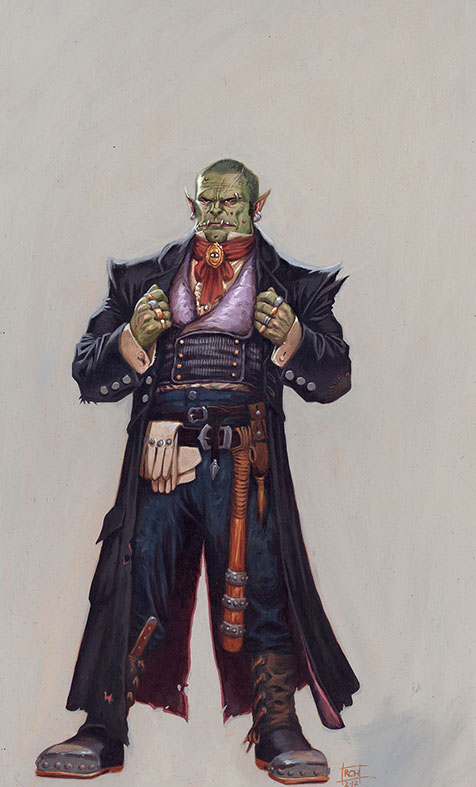The Trouble with Orc Souls

The Orcs presented a fundamental conflict for J.R.R. Tolkien one that he never resolved during his life.
On the one hand, he envisioned the Orcs as being animals that talk. He wanted them to be soulless abominations.
On the other hand, he didn’t want Morgoth to have any power of creation whatsoever.
Aulë was allowed to create life. Or to be more exact had the capability since he was never given permission by Ilúvatar to bring the Dwarves into the world. Aulë was forgiven for this action because it was done out of a love of creation and an impatience to see the Elves brought into the world. He simply couldn’t wait to teach them.
“But the delight and pride of Aulë is in the deed of making, and in the thing made, and neither in possession nor in his own mastery.“
This is significantly different from Melkor’s motivations.
“And he descended upon Arda in power and majesty greater than any other of the Valar, as a mountain that wades in the sea and has its head above the clouds and is clad in ice and crowned with smoke and fire; and the light of the eyes of Melkor was like a flame that withers with heat and pierces with a deadly cold
Melkor, however, was stripped of any such ability when he rebelled, and perhaps before he rebelled.
“Melkor wove his strange thoughts into his song. His song clashed against the Theme of Ilúvatar, disturbing the Ainur around him and causing some of them to attune their music to his. For a while the Theme of Ilúvatar and the discords of Melkor warred against one another. But Eru smiled, and sent forth a new theme. Most of the Ainur joined with it, but Melkor rebelliously opposed it even more violently. At last, many of the Ainur stopped singing in dismay, and Melkor’s discords gained dominance. Eru sent out a third Theme against Melkor, sweeter and more beautiful than the others, and unquenchable. But though Melkor could not defeat it, still he opposed it. At last, Eru halted the music completely with a single chord.
Eru then publicly rebuked Melkor, saying that all music finds its source in himself, and thus Melkor could not create his own song or truly alter the Themes of Ilúvatar. Thus, though Melkor opposed Eru to his last breath, he only furthered the cause of Ilúvatar in new and wondrous ways.”
It was critically important to J.R.R. Tolkien that Morgoth be fundamentally incapable of the power of creation.
“The Shadow that bred them can only mock, it cannot make: not real new things of its own. I don’t think it gave life to the orcs, it only ruined them and twisted them; and if they are to live at all, they have to live like other living creatures.”
Thus, Tolkien was presented with a conundrum. Morgoth could not create but only twist and ruin. So he had Morgoth degrade and corrupt the first children of Ilúvatar, the Elves, and turn the ones he caught into the Orcs
But if that was the case then Orcs would have souls. Whenever an Orc died, he would go to the ever-expanding Halls of Mandos along with the Men and Elves to await resurrection and the Judgement of Mandos.
But Tolkien didn’t want them to have souls, he specifically wrote in the margin of Christopher Tolkien’s notes, “Change that. Orks are not Elvish,” but he couldn’t let Evil be a creator either.
J.R.R. Tolkien never resolved this conflict in his life. Eventually, Christopher Tolkien made the call for his Dad when he published The Silmarillion and locked down the creation of Orcs as tortured and corrupted Elves.
As for Mandos, that kind of got swept under the rug.
Okay, I’m done here.

